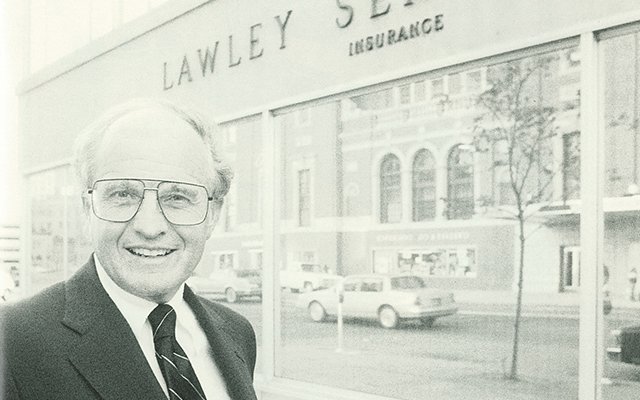Steve Jacobs Featured In Buffalo Business First Article Highlighting Employee Theft and Dishonesty Insurance


Steve Jacobs, Insurance Consultant, was recently featured in a Buffalo Business First story “Insurance protects against dishonest workers” discussing how Steve’s recommendation for one of his clients to add a dishonesty insurance policy to their coverage saved them $500,000 when their comptroller was found to be stealing money from the company. We profiled this example is a case study here.
Jacobs focused on why employee dishonesty is not always an isolated incident, and that while your company could file a civil lawsuit to recoup stolen funds, it’s rare for a defendant to have the money to actually pay off a judgment. “It’s a fact of life that some people can’t be trusted,” said Jacobs.
Insurance protects against dishonest workers
Steve Jacobs got a call in November from an executive at a local manufacturer. Her question was simple: “Do we have dishonesty insurance?”
The answer, thankfully, was yes. It came out a short time later that a top official had been stealing from the company for more than a decade, totaling more than a half-million dollars.
The criminal process is running its course, but that means little in terms of a company recouping expenses.
The company could file a civil lawsuit but it’s rare for a defendant to have the money to actually pay off a judgment. It was only because of the dishonesty insurance that the company was able to recoup the budgetary hole left by the theft.
“It happens over a period of years. You don’t just come in on a Friday and realize an employee has stolen $250,000,” said Jacobs, an insurance adviser at Lawley. “It’s a little here and a little there and it’s usually found on a fluke. But then it’s a huge hole on your financial statement.”
Jacobs said he strongly recommends that business clients add dishonesty insurance, which can cost a small business between $500 and $2,000 a year depending on how many employees they have and other factors.
Theft almost always comes from a senior financial official who finds a way to siphon money while covering their tracks for years, he said.
[bctt tweet=”“Every so often you read about a business in Buffalo that closed because they didn’t have dishonesty insurance.”” username=”LawleyInsurance”]“It’s a fact of life that some people can’t be trusted,” Jacobs said. “Every so often you read about a business in Buffalo that closed because they didn’t have dishonesty insurance.”
It’s not an isolated issue.
The Association of Certified Fraud Examiners estimated this year that the typical organization loses 5 percent of annual revenue to fraud. The median loss from a single case of occupational fraud in the United States was $120,000.
Dishonesty insurance covers a specific set of circumstances. For instance, if an employee drove off with a $70,000 forklift and it was captured on video, that would not be covered by general theft insurance, which does not account for claims of theft by employees, Jacobs said.
“If you have employee dishonesty insurance, you would collect for that,” he said.
Company executives sometimes hesitate to buy the insurance because it implies a lack of trust in other longtime managers, he said. But positions of seniority and trust are what create the opportunity for long-term fraud.
It’s a somewhat easier sell for owners who live in different regions than their company headquarters. Jacobs said he sold one local manufacturing client a dishonesty insurance policy recently. In that case, the owner lives in New York City and takes a hands-off role in dealing with the chief financial and HR officers.
Dishonesty insurance may be a good idea, but it’s not necessarily easy to collect on it, Jacobs said. The company has to press charges or convince the district attorney to press charges.
In the case of complex and long-running fraud, a forensic accounting of a company’s financial history is often necessary.
But it’s better than the alternative: a massive budgetary hole.
“It’s up to the broker to recommend this coverage and the high limits are cheap,” Jacobs said. “I’m a big fan of over-insurance.”
The full article can be read here(subscriber required content). The case study explaining this scenario can be read here.








